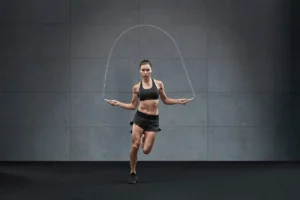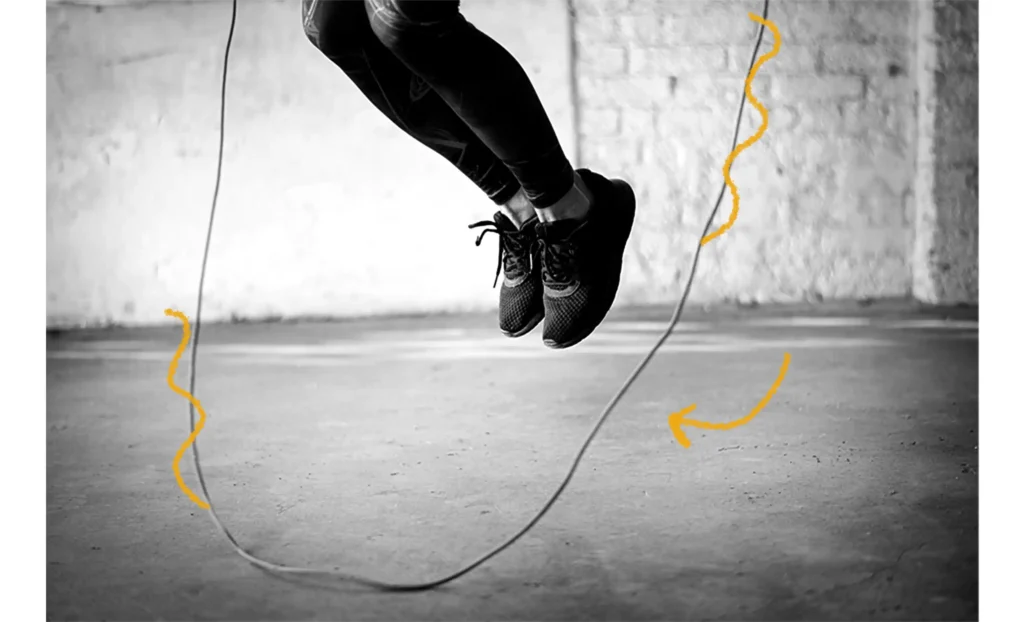In recent months, skipping—commonly known as jump rope—has resurfaced as one of Nigeria’s fastest-growing fitness trends, thanks largely to viral content shared across TikTok and Instagram. Once seen as a simple childhood game, skipping has now evolved into a full-fledged workout phenomenon embraced by fitness influencers, athletes, and everyday Nigerians looking to stay in shape without breaking the bank.
Short-form video challenges and tutorials have helped turn jump rope workouts into an exciting online movement. From high-energy solo routines to synchronized group skips, Nigerians are turning sidewalks, schoolyards, and rooftops into makeshift fitness studios—all with one inexpensive tool: the skipping rope.
Why Skipping is Winning Hearts (and Lungs)
What makes skipping so popular? Its simplicity, affordability, and powerful impact on overall health.
Unlike gym memberships or home workout equipment that often come with high price tags, a quality skipping rope can be purchased for as little as ₦1,000–₦3,000. Yet the benefits are immense: skipping improves cardiovascular endurance, burns calories quickly, strengthens leg muscles, tones the core, and boosts coordination.
According to fitness trainers, 15 minutes of moderate to intense jump rope exercise can burn more calories than running, cycling, or walking. Many Nigerians who previously struggled to maintain fitness routines now see skipping as a flexible, portable, and results-driven option.

Social Media Sparks the Challenge Craze
The recent explosion in skipping’s popularity can be traced back to viral videos and fitness challenges circulating on TikTok and Instagram. Influencers post 30-day jump rope transformations, freestyle routines set to Afrobeats, and choreographed group challenges—often with hashtags like #JumpWithMeNG, #NaijaSkipFit, or #RopeChallenge2025.
These challenges encourage users to commit to daily skipping routines, track their progress, and engage with other participants online. Many share before-and-after results, motivational clips, and even bloopers, adding a layer of relatability and fun that helps attract more people to the trend.
Online communities have formed around skipping groups, with members exchanging techniques, encouraging consistency, and celebrating milestones together. This digital support network has helped make skipping a sustainable and socially engaging fitness habit.
Accessible to All Ages and Lifestyles
One major factor behind skipping’s appeal is its accessibility. Whether you’re a university student, a stay-at-home parent, or a busy professional, skipping fits neatly into your schedule and lifestyle. You don’t need a gym, a trainer, or hours of free time—just a rope and a bit of space.
Children and teenagers are also joining in, with schools in Lagos, Abuja, and other urban areas incorporating skipping into physical education activities. Even among older adults, light jump rope routines are gaining popularity for promoting heart health and joint mobility.
For many Nigerians who live in crowded cities with limited open space, the compact nature of skipping makes it ideal for indoor or outdoor workouts. Skipping can be done in a living room, backyard, or compound without disturbing neighbors.
From Exercise to Expression: The Art of Skipping Freestyle
Beyond the health benefits, skipping has also become a form of creative self-expression. Freestyle skipping routines—where jumpers add dance steps, double unders, crossovers, or tricks—are gaining traction. Skipping teams now perform at local events and post their skills online to build followings and inspire others.
Some Nigerian content creators are now monetizing their skipping videos, earning from platform views or brand partnerships with fitness gear companies. For many, skipping has grown from a hobby into a side hustle or career-building opportunity in the wellness space.
Health Experts Endorse the Movement
Health and fitness professionals have praised the skipping trend for its inclusivity and effectiveness. Doctors highlight that jump rope workouts help regulate blood pressure, improve mental clarity, and reduce the risk of lifestyle-related illnesses like obesity, diabetes, and heart disease.
Wellness coaches also emphasize how skipping supports mental well-being by releasing endorphins, reducing stress, and fostering discipline. The rhythmic nature of the movement can be meditative, offering psychological benefits beyond physical fitness.
Some NGOs and public health agencies have even begun to explore skipping as part of community outreach programs focused on promoting physical activity in underserved areas.
What’s Next for Skipping in Nigeria?
With its current momentum, skipping appears set to remain a long-term fixture in Nigeria’s wellness culture. Fitness instructors are incorporating ropes into boot camps and HIIT (High-Intensity Interval Training) sessions. Skipping clubs are forming in universities, while national fitness events and charity challenges are starting to feature jump rope competitions.
There is also growing interest in using skipping as a tool for youth empowerment, particularly in urban neighborhoods. Some grassroots organizations are launching skip-based initiatives to engage young people in physical activity, teamwork, and content creation.
In a time when health, affordability, and digital connection are more important than ever, skipping offers a simple yet powerful solution—one jump at a time.







